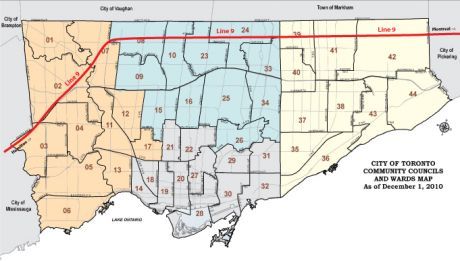Features
You are here
No tar sands, no pipelines: stop Line 9

March 7, 2013
On October 22 last year, 5,000 people—including speakers from First Nations, environmental groups, labour unions, the NDP and Green party—rallied at the Victoria legislature against the Northern Gateway and Kinder Morgan tar pipelines taking tar sands west. On February 17 of this year, tens of thousands rallied outside the White House against the Keystone XL pipeline, the largest single climate protest in US history. With mass pressure against pipelines taking tar sands west and south, there is increasing focus on Enbridge’s Line 9 taking tar sands east.
Line 9
Line 9 was built in 1975 to transport conventional oil westwards from Montreal to Sarnia. Now Enbridge wants to reverse the flow and use it to pump bitumen from the tar sands east. According to the Natural Resources Defense Council, “These heavy metals have a variety of toxic effects, are not biodegradable, and can accumulate in the environment to become health hazards to wildlife and people.”
Line 9 passes through the most densely-populated area in Canada, including Toronto, and through critical watersheds including the St. Clair River, the Thames River, and the Grand River. Line 9 also passes through First Nations territories that have not been consulted, and that have already had experience with oil and chemical companies. According to Ron Plain, member of Aamjiwnaang First Nation, “The lands these companies operate upon were stolen from my community and turned into a toxic wasteland without our consent or consultation...Instead of feeding my family these lands kill my community.”
Enbridge’s Line 9 project violates indigenous sovereignty, carries oil that comes from the destructive tar sands, and goes towards increasing carbon emissions that threaten our entire planet’s ecosystem. In addition, Line 9 carries an inevitable risk of a spill—like the massive spill from Enbridge’s Line 6A in Michigan in 2010—that would threaten the water supply upon which our health depends.
Last year a broad-based campaign—uniting indigenous groups, farmers and environmentalists—succeeded after sustained mobilizing to stop the proposed mega-quarry. We need a similar campaign against Line 9, and it has already begun. On November 17 hundreds attended a conference in Toronto opposing tar sands, and now west and east end groups are emerging to build local opposition to line 9--in solidarity with activists in Aamjiwnaang. This has the potential of uniting indigenous communities defending their land, unions pushing for green jobs, and environmentalists—and to encourage the NDP to speak out against tar sands and all pipelines.
Section:









